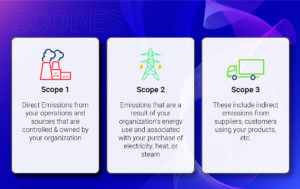Environmental, Social, & Governance (ESG) is a part of every business in India today. Whether you’re one of the top 1000 listed companies that must mandatorily report ESG metrics under the Business Responsibility and Sustainability Reporting (BRSR) framework, ESG reports are indispensable to meet current investor, consumer, and stakeholder demands in India.
Here are some ESG trends in India to keep your eye on!
1. Businesses are Becoming Mindful About ESG
It may be SEBI’s BRSR mandate, the pressure of global ESG regulations, or consumer expectations – but businesses are quickly becoming more mindful of enhancing their ESG metrics to improve ESG performance. For instance, to improve its environmental impact, Tata Communications has set targets to increase its use of renewable energy in India by 65% in FY 2022-23, building over its previously achieved target of a 45% increase in FY 2020-21.
On the social front, Indian companies have already integrated a tradition of improving their social metrics, mandated by Section 135 of the Companies Act, 2013, to spend a minimum of 2% of their average net profits made during the three immediately preceding financial years on CSR. The BRSR mandate’s impact on the current ESG landscape in India only adds to Indian companies’ obligation to report and improve the ‘S’ in ESG.
Under the governance parameters, the electricity, gas, steam, and telecommunication sectors have performed the best among their counterparts in India.
2. The Pressure on Businesses to Improve Environment Metrics Amp Up!
In a World Economic Forum report on the Environment Performance Index (EPI), India, unfortunately, scored the lowest of all countries on environmental performance. India’s poor performance includes deteriorating air quality and increasing Greenhouse Gas (GHG) emissions.
Rising to the challenge and motivated further by the BRSR mandate, Indian companies are quickly stepping up and setting targets for climate action. For instance, many companies are building and managing strategies and pathways to ensure carbon neutrality across their Scope 1, Scope 2, and Scope 3 emissions.
Industry experts suggest that power, transportation, steel and cement, and agriculture are top polluting sectors that need immediate action. Indian companies are investing in renewable power and green hydrogen, and setting up carbon capture units, among other initiatives, to make climate action a priority.
3. Indian Businesses Are Facing Several Challenges in Setting GHG Targets & Improving ESG
As of July 2022, 64 Indian firms have pledged to reduce their GHG emissions. Additionally, 88 companies in India disclosed CDP’s climate change questionnaire across the themes of Climate Change, Water Security, and Forests in 2021. While businesses are setting targets to impact the environment and their bottom line positively, several challenges come with reporting and improving ESG metrics, specifically the ‘E’ of ESG.
- Companies find it difficult to actively source renewable energy across all their business locations – necessary to achieve carbon neutrality and offset their carbon footprints.
- Companies need to get to the bottom of their operations and functions, modifying existing processes to achieve carbon neutrality. Such a project can be capital and resource intensive.
- Companies are struggling to find and report accurate data that accounts for their enterprise-wide emissions, in addition to that of their supply chains. Measuring and reporting Scope 3 emissions is a challenge that Indian companies must tackle!
Studies suggest that one of the biggest barriers to reporting investment-grade ESG data is the lack of digital technology. Opting for a holistic, cloud-based digital solution can help companies like yours collect accurate ESG data across multiple business sites and functions, report ESG metrics to the right stakeholders, including SEBI under BRSR, and analyze ESG performance to ensure progress across Environmental, Social, and Governance parameters!
With Benchmark ESG’s comprehensive ESG & Sustainability Management tools, you can track your company’s energy usage, resource consumption, carbon footprint, and costs, coordinating inputs across functions, teams, and systems to report, analyze, and improve complete, verifiable, and timely ESG data under global frameworks including GRI, CDP, BRSR and more.






MichaelFaw
[url=https://santehnik-na-dom-spb.ru/]сантехник по вызову[/url]
[url=https://santehnik-na-dom-spb.ru/]https://www.santehnik-na-dom-spb.ru[/url]
[url=http://www.furntech.org.au/?URL=santehnik-na-dom-spb.ru]http://gb.mystockhk.com/gate/gb/santehnik-na-dom-spb.ru[/url]
credit_card_Prerm
кредитки без проверок
https://oformit-kreditnuyu-kartu1.ru/